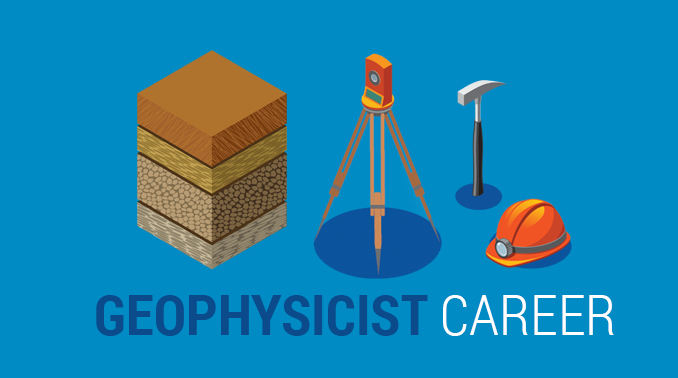All Categories
Featured
Table of Contents
Geophysics in Ascot WA 2021

Other possible geophysicist majors that aren't geophysics or geoscience include: Climatic sciences and meteorology Chemical and physical oceanography Earth science Environmental science Hydrology and water resources science Products science By earning any geophysicist degree, and by taking the necessary geology courses, you need to receive an entry-level position as a geoscientist or geophysicist.
Ultimately, students need to discover: a branch of geology that looks at the different aspects of minerals, including chemical structure, internal crystal structure, and physical homes. the study of rocks and the procedures and conditions that form and change them over time. There are a couple of subdivisions in this branch of geology, including igneous, metamorphic, and sedimentary rocks.
This field analyzes structural rock features such as cleavage, faults, joints, and small folds. They must also find out the computer system skills needed to: evaluate data develop digital models and maps run geoscientists' software Students ought to likewise make the most of all chances to acquire real-world experience. Hopeful geophysicists need to expect to spend time learning: in the classroom in the field in laboratories Undoubtedly, skills taught in the classroom are extremely essential for aiming geophysicists.
Field Geophysicist - Parsons Careers – Engineered Systems in Winthrop Oz 2023
Geoscientists spend a lot of their time outside when working in the field, so they should have "outside skills" like outdoor camping and running boats, airplane, and other cars. Due to the fact that they invest a lot time in remote places, it's important that geophysicists also have the physical stamina to carry needed equipment on their hikes to places of research study.
The job provides: a high mean and leading revenues a high rate of personal fulfillment amongst geophysicists low work tension positive job outlook Additional info on profits potential and task outlook is detailed listed below. For students wanting to land an entry-level function as a geoscientist or geophysicist, it takes 4 years, or the time needed to finish a bachelor's degree in geophysics or an associated discipline.
Some research positions in geophysics need doctoral degrees. Also, if you plan to teach at a college or university, you need to make a Ph - Geophysical Engineering Undergraduate Program in Perth Australia 2023. D. in geophysics or a related field. The time it requires to make a Ph. D. differs by organization and program, but it usually takes 4 to six years beyond the bachelor's degree.
Geophysicist Salary in Midvale Aus 2022
The majority of companies need prospects to have a bachelor's degree in geophysics or a carefully associated discipline for all entry-level positions. As a result, there's no way around the degree requirements for becoming a geophysicist.
Currently, 31 states need licensing for geologists, although licensing is not always required, particularly for entry-level work. The states that do problem licenses utilize the Basics of Geology Examination (FGE), which is administered through the National Association of State Boards of Geology (ASBOG). Now that you know which degree for geophysicist tasks you require, you'll require to land a job, and it is very important to find out just how much cash you can make in this profession.
According to BLS, the typical yearly wage for geoscientists is $93,580. According to BLS, specific markets provide greater wages for geoscientists, and in some cases, they provide higher-than-average revenues.
What Do Geoscientists And Hydrologists Do? in Leeming WA 2023
Mining, quarrying, and oil and gas extraction provides over $32,000 more every year than the average annual wage for this profession. The federal government, too, uses over $10,000 more in earnings than the nationwide average for geoscientists. In addition to market type, geographic area can greatly affect incomes for this occupation.

The top-paying states and their yearly mean salaries, according to the BLS, consist of: Texas $166,720 Oklahoma $149,630 Pennsylvania $120,590 Hawaii $120,130 Colorado $107,260 These 5 top-paying states provide much higher earnings than the average for this profession. In reality, incomes for geoscientists in Texas are over $73,000 greater than the national average.
It ought to come as not a surprise that the majority of these high-paying locations remain in Texas and Oklahoma, however some are discovered in California, Louisiana, and Colorado. The top 10 highest-paying metro locations for geoscientists are: Houston-The Woodlands-Sugar Land, Texas: $188,400 Tulsa, Oklahoma: $186,490 Midland, Texas: $167,040 Odessa, Texas: $147,080 Oklahoma City, Oklahoma: $145,350 Bakersfield, California: $130,080 Urban Honolulu, Hawaii: $124,470 New Orleans-Metairie, Louisiana: $121,030 Washington-Arlington-Alexandria, DC, VA, MD, WV: $120,180 Denver-Aurora-Lakewood, Colorado: $116,910 For some geoscientists and geophysicists, living in a metro city is not as enticing as living in a smaller community.
Table of Contents
Latest Posts
Airborne Geophysical Survey in Hocking Aus 2023
Geophysical Survey Services - Geophysical Test Methods in Karrinyup Australia 2020
Geophysicist: Job Description, Duties And Requirements in The Vines Aus 2020
More
Latest Posts
Airborne Geophysical Survey in Hocking Aus 2023
Geophysical Survey Services - Geophysical Test Methods in Karrinyup Australia 2020
Geophysicist: Job Description, Duties And Requirements in The Vines Aus 2020